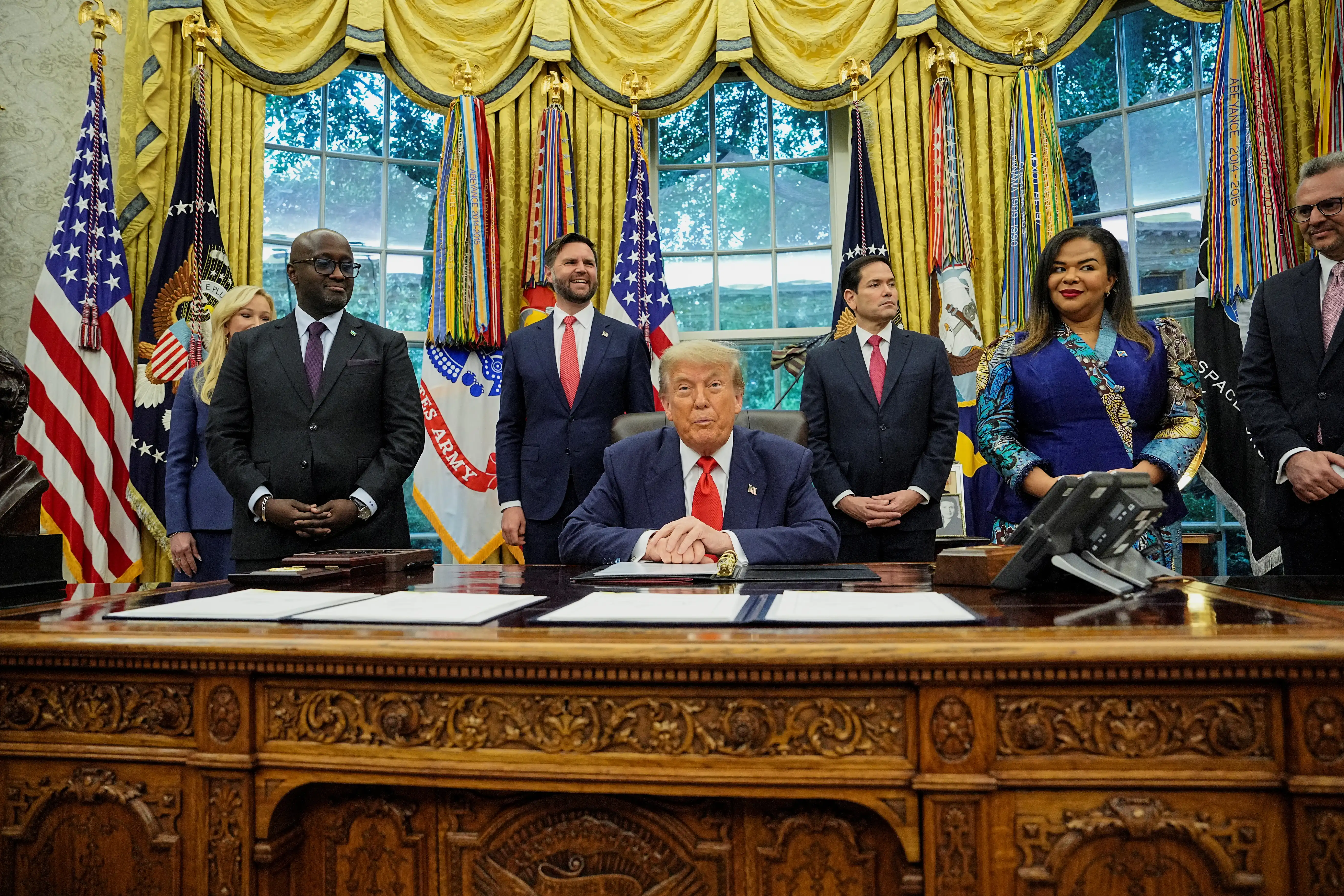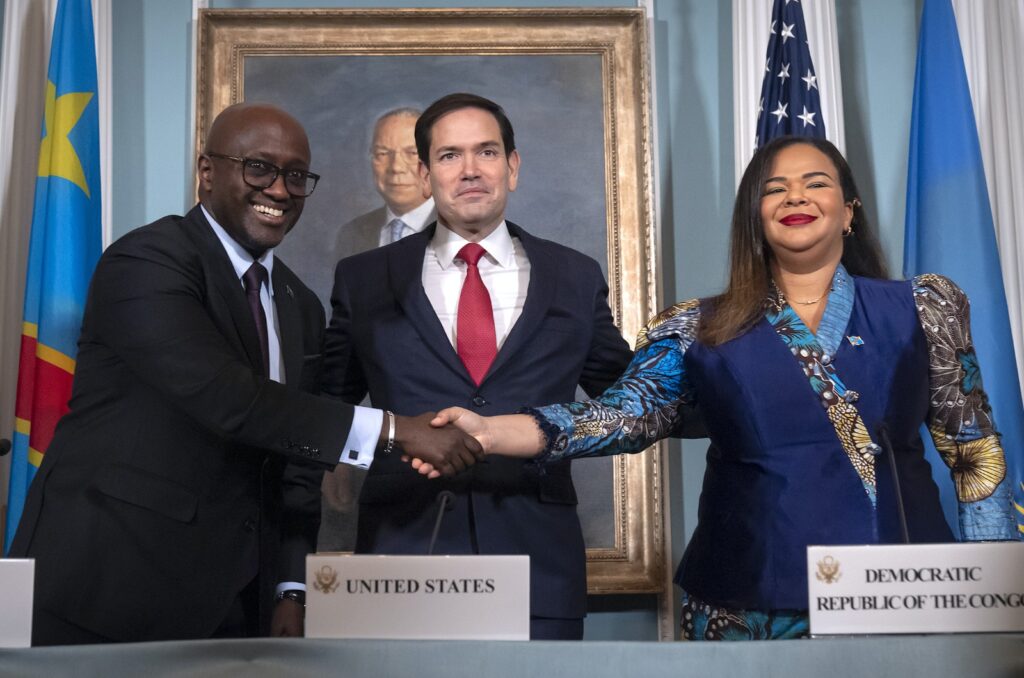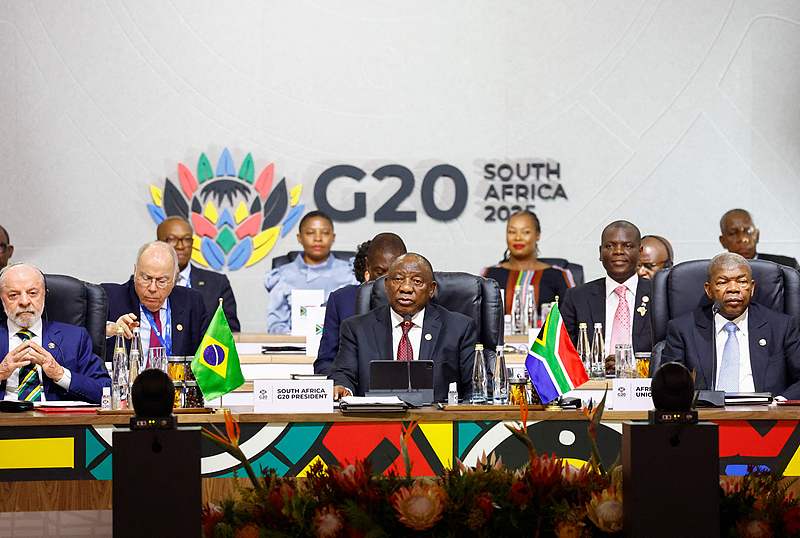
Rwanda, DR Congo sign much-awaited peace deal
Rwanda and the Democratic Republic of Congo signed a peace agreement in Washington D.C. on Friday, June 27, aimed at ending years of armed conflict.
The deal, signed by DR Congo’s Foreign Minister Thérèse Kayikwamba Wagner and her Rwandan counterpart Olivier Nduhungirehe, calls for Rwanda to withdraw its troops within 90 days, and for both countries to establish a joint security mechanism within 30 days and launch a regional economic integration framework within 90 days.
The signing ceremony was hosted by U.S. Secretary of State Marco Rubio, in a ceremony also attended by the Chairperson of the AU Commission Mahmoud Ali Youssouf, Togolese Foreign Minister Robert Dussey, and Qatari Minister of State Mohammed bin Abdulaziz Al-Khulaifi.
U.S. President Donald Trump later hosted the Congolese and Rwandese Foreign Ministers at the White House and hailed the agreement as a “glorious triumph”.
“Today, the violence and destruction comes to an end, and the entire region begins a new chapter of hope and opportunity,” he said.
Trump said the U.S. would gain access to DR Congo’s mineral rights as part of the deal. The region is rich in cobalt, lithium, and other critical minerals.
“We’re getting, for the United States, a lot of the mineral rights from the Congo as part of it. They’re so honored to be here. They never thought they’d be coming,” he told journalists.

Nduhungirehe said the agreement is “grounded in the commitment made here for an irreversible and verifiable end to state support for FDLR and associated militias”.
“We must acknowledge that there is a great deal of uncertainty in our region, and beyond, because many previous agreements have not been implemented,” he added.
“It offers a rare chance to turn the page, not just with words but with real change on the ground. Some wounds will heal, but they will never fully disappear,” Wagner said.
Many global leaders have praised the agreement and expressed their support for the peace efforts that they believe could resolve the conflict in the troubled eastern DR Congo.
United Nations Secretary-General Antonio Guterres called the deal “a significant step towards de-escalation, peace and stability”, both in the DR Congo and the larger Great Lakes region.
“I urge the parties to honour in full the commitments they have undertaken in the Peace Agreement and pursuant to Security Council resolution 2773 (2025), including the cessation of hostilities and all other agreed measures,” he said.
The Chairperson of the African Union Commission, Mahmoud Ali Youssouf, welcomed the ‘significant milestone’ and commended all efforts to promote peace, stability, and healing in the region.
The Chairperson of the AU Commission, H.E. @ymahmoudali, yesterday joined the US Secretary of State, H.E. @marcorubio, H.E. M. Al-Khulaifi, Minister of State of the State of Qatar, & H.E. Robert Dussey, Foreign Minister of Togo, in witnessing the signing of a peace agreement… pic.twitter.com/eYyKTp50Qf
— African Union (@_AfricanUnion) June 28, 2025
Egypt, in a statement released by its Ministry of Foreign Affairs, also welcomed the signing of the peace agreement and called for the full implementation of this agreement and the follow-up of its outcomes to ensure the sustainability of peace and stability in the region.
French President Emmanuel Macron termed the deal “a historic step forward after decades of suffering”, adding that “peace must hold.”
(With input from agencies)






